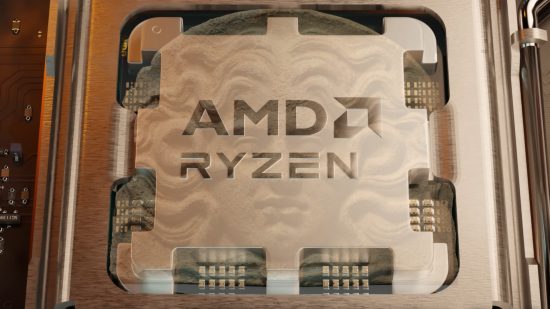The first Zen 5 CPUs are yet to break cover, but this hasn’t stopped rumors about AMD Zen 6 chips making their way into the tech gossip circuit. While little is currently known about the new microarchitecture, these new morsels of information paint a picture of a surprisingly powerful processor range when it comes to GPU performance.
Right now, AMD is in a particularly strong position versus Intel in the never-ending battle to secure the title of best gaming CPU. While the Ryzen 7 7800X3D currently tops our list, its RDNA 3 iGPU does leave much to be desired. However, Zen 6 could be set to remedy this situation via some unexpected leapfrogging.
Taking to X (Twitter), hardware leaker Olrak29_ dropped the bombshell that “Medusa has RDNA 5 iGPU, skipping RDNA 4”. The “Medusa” in question here is the alleged codename used by AMD for its Zen 6 microarchitecture.
For context, most Zen 4 processors, such as the Ryzen 7000 series, currently use RDNA 2 iGPUs, with the most notable exceptions being CPUs in the recently launched Ryzen 8000G series, which instead use RDNA 3. It is expected that Zen 5, expected later this year, will feature the more recent GPU architecture.
Were Zen 6 to follow the same pattern, the CPUs would feature RDNA 4 iGPUs, which is what makes this potential design so exciting. On the desktop, the RDNA 4 range is expected to top out with a card that offers RTX 4080 performance for half the price. However, RDNA 5 is rumored to be bringing much improved AMD ray tracing performance, which would be great for an integrated GPU.
In addition to sharing details about Zen 6 iGPUs, Olrak29_ also disclosed that “Medusa will use 2.5D interconnect”, in place of the multi-die design we’ve seen in previous releases. Adopting this strategy would elevate the bandwidth between the chiplets found on a Ryzen processor, and should, in turn, unlock greater levels of performance.
Naturally, we don’t expect to get any official word about Zen 6 or RDNA 5 anytime soon, but there’s still plenty to look forward to in the coming months from AMD, with hopes the company is ready to unleash new processors and graphics cards this year.
In the meantime, catch up on our picks for the best gaming CPU before both Zen 5 and, more immediately, Zen 4 processors arrive.
